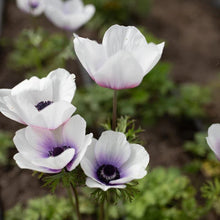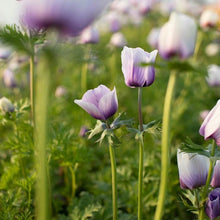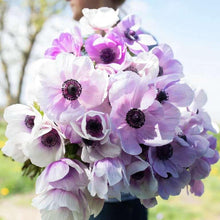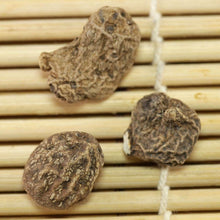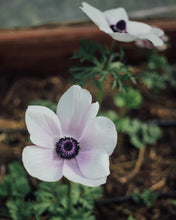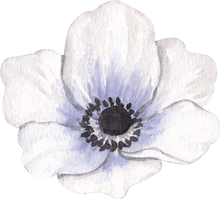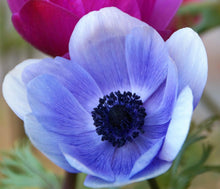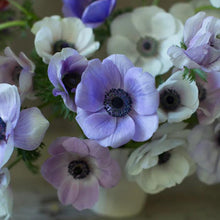
Native to the Mediterranean, Coronaria anemones, or poppy anemones (sometimes called windflowers) naturalize easily and make a stunning view when planted en masse in the garden border or container.
This listing is for the sale of corms, not flowers, which are like little bulbs in that all the energy of the plant is stored in one compact place.
🇫🇷 The "Jerusalem" anemone series has been bred to bloom earlier than normal anemones, with a high flower production all through the season.
Anemone Jerusalem "Blanche a fond bleu" in French or "White with blue center" in English has blueberries-and-cream colored blooms. Their pastel-lavender and white tie-dye appearance is eye-catching, and no two blooms are the same!
- Scientific name: Anemone Coronaria
- Bulb size: 3/4
- Flower size: 5 cm diameter
- Plant height: 30-50 cm
- Plant spread: 25-40 cm
- Light: full sun
- Soil: light, loamy, sandy
- Rate of growth: average (generally takes 2 months to sprout and 3 months to flower)
- Flowering period: Spring
- Use: Containers, rock gardens, woodlands, long-lasting bouquets
- Hardiness: USDA Zones 7 - 10 as perennials (annuals anywhere)
- Warning: Can be toxic to dogs and cats








